One thing I’ve realized staying in Munich is that it is not only a German city, but also an international city. That being said, I also notice a lot that Munich is a city influenced by American culture. When the radio plays in the morning the talk show hosts speak in German, but most of the music is in English, less often in German and Spanish. That being said, the question of what American culture is – who is American – is one that has required clarification multiple times in Munich.

My host mother, Mariana, is from Argentina, but has made Munich her home. We have spoken a few times about what it means to come to Germany from the Americas, and the question comes up often in conversation with new acquaintances.
To this point, the most common question I’ve received here, perhaps even more often than an inquiry after my name, is “Woher kommst du?” – “Where are you from?” Most often I answer, “Aus den USA,” or “Aus den Vereinigten Staaten.” Generally though, this is eventually clarified by my interlocutor or myself as America. Mariana reminded me in the first few days of my stay that she too is an American; Argentinians are Americans, from South America, just as those from the USA are Americans, from North America. Mariana laments that people from Germany and the USA alike don’t recognize the common history of the Americas. After Mass one day I was talking (in German) with a Peruvian woman, Justina, and she made a similar comment; she is Peruvian but also American.
In fact, Munich is not the first this place where this point has been clarified in conversation. The question asking to whom the title “American” belongs was also a common one in my high school Spanish class, and my teacher from Mexicali would often reiterate the same idea as outlined above. It is interesting to see that the issue is not only one between Americans of the north and south, but also in Europe and perhaps beyond.
Nevertheless, among Germans and most of the international students at the Sprachschule, Americans remain citizens of the US alone. I don’t think this they mean to discredit citizens of other countries in the Americas; rather, countries have grown to be a greater marker of identity than these larger geographical designations that are perhaps more historical and cultural, less political and economic. Looking at the newspapers here, one sees that these political and economic issues dominate the headlines. Alongside Kanzlerin Angela Merkel, one often sees images of President Trump accompanied by questions of what lies in store for political relations in these somewhat uncertain times.
That being said, there are also some German newspapers that focus less on these looming questions, and instead share stories about curiosities. I found this one a while back:
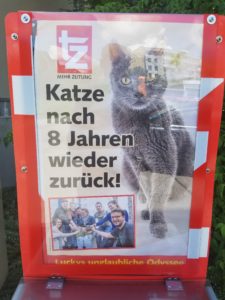

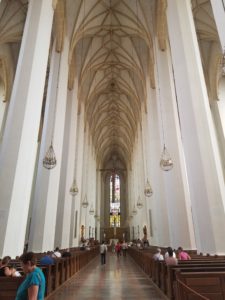
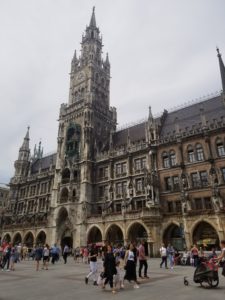


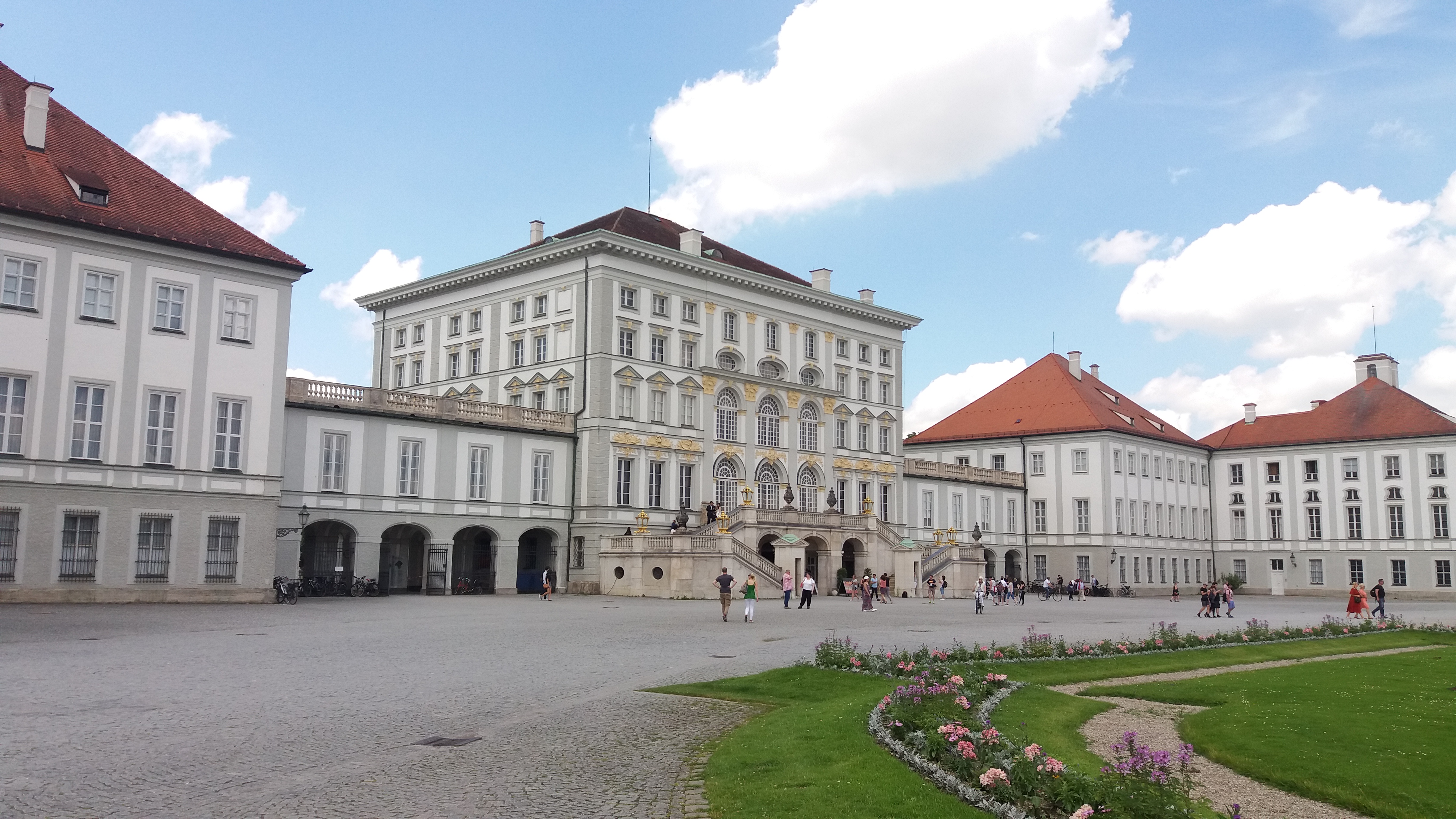
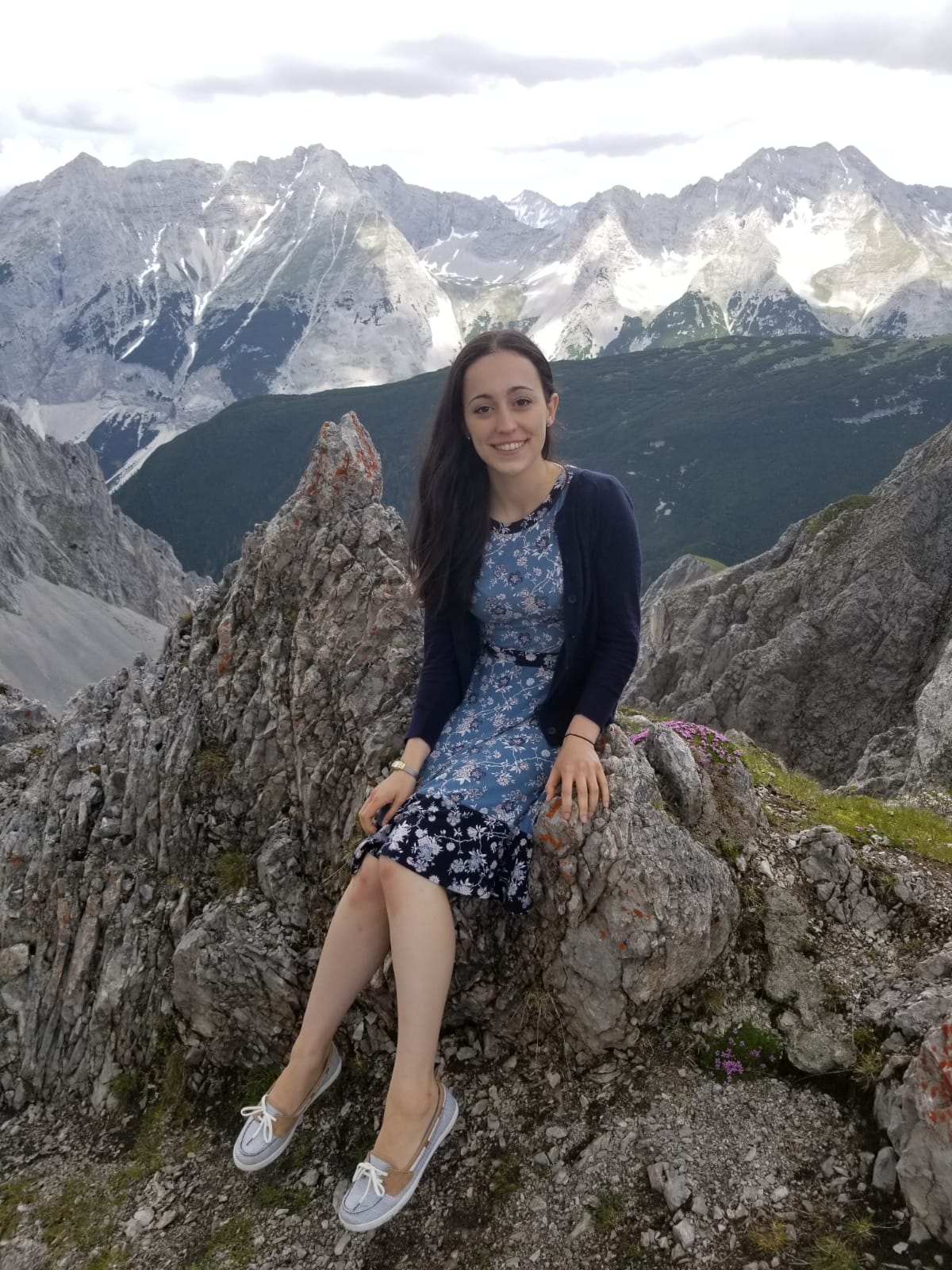
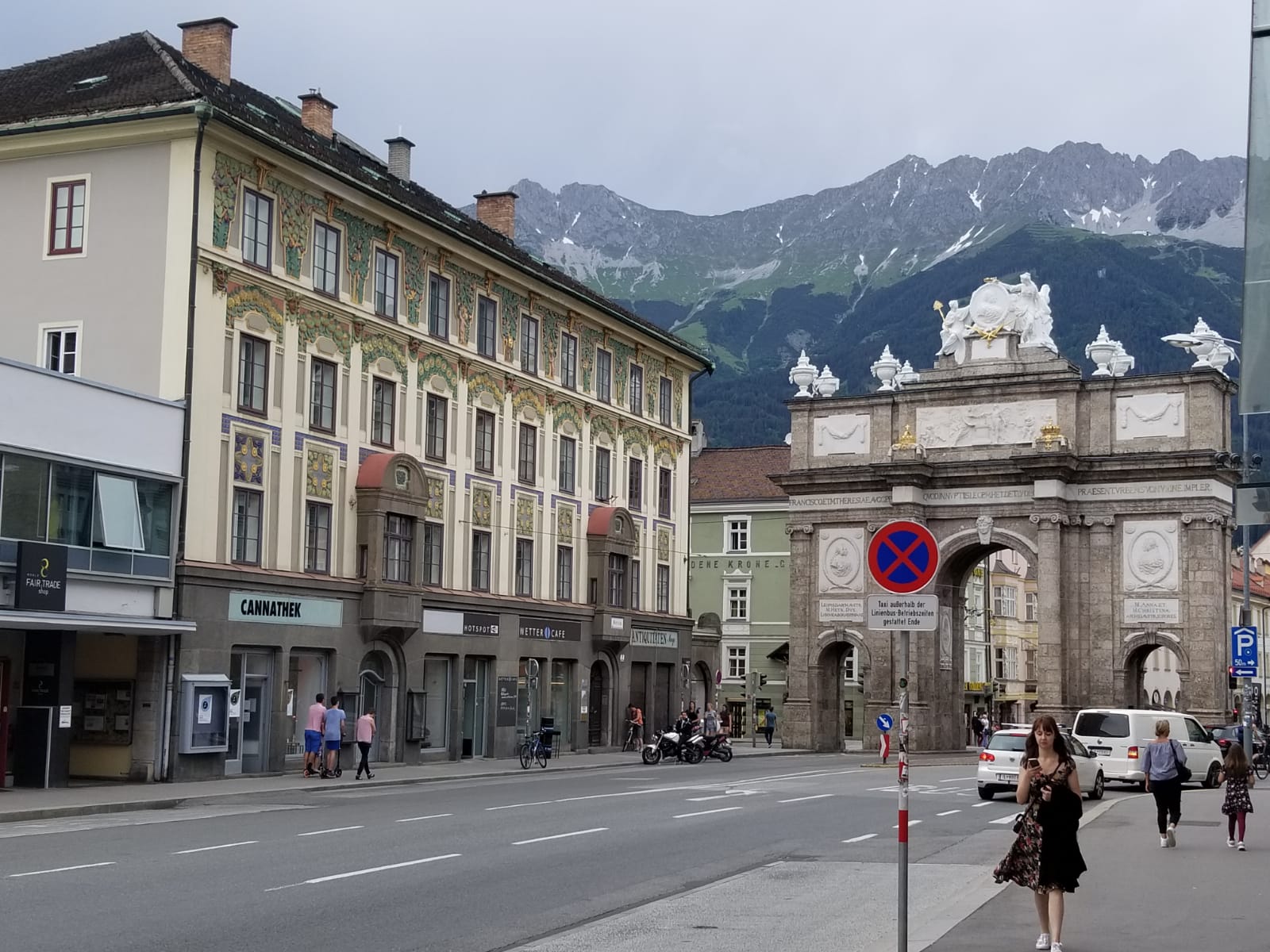
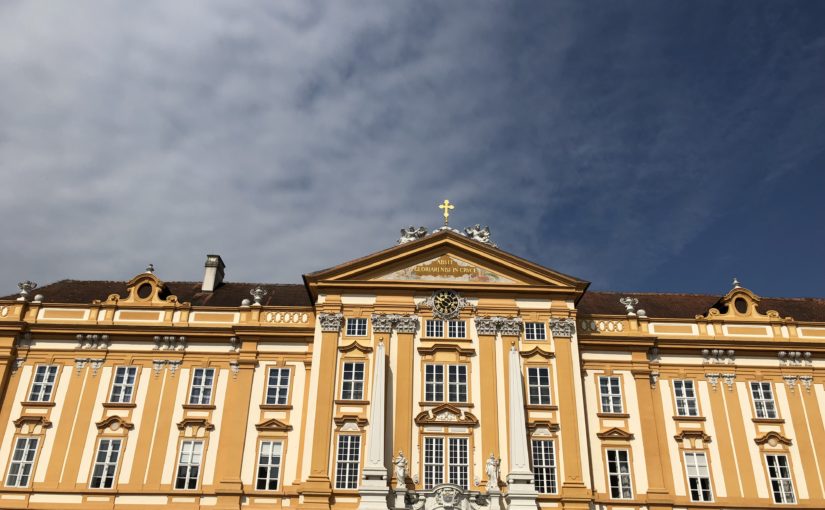
 Later on in the week, I had a weekend trip planned to Vienna, Austria (Wien, Österreich in German). I looked forward to visiting this country because the primary language spoken there is also German! It was another place I could practice my speaking and reading skills. While in Vienna, I visited Schönbrunn Palace and Gardens, a
Later on in the week, I had a weekend trip planned to Vienna, Austria (Wien, Österreich in German). I looked forward to visiting this country because the primary language spoken there is also German! It was another place I could practice my speaking and reading skills. While in Vienna, I visited Schönbrunn Palace and Gardens, a 


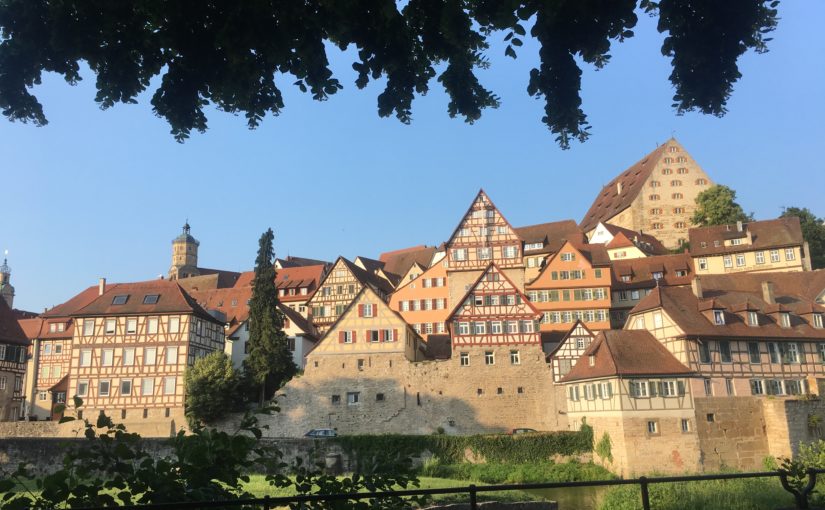
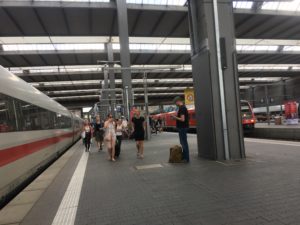
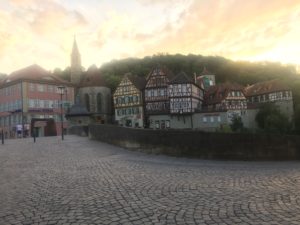
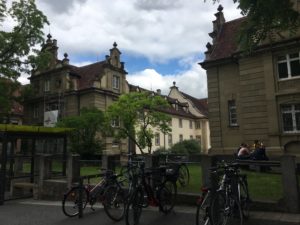
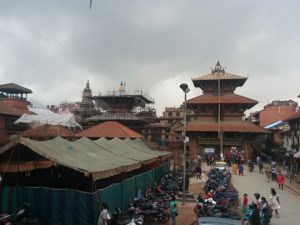
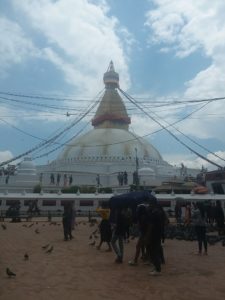
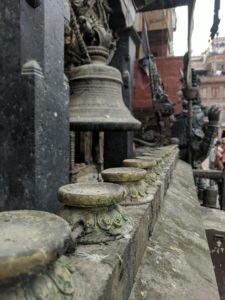
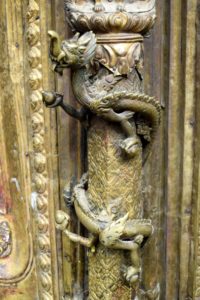
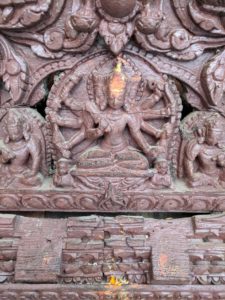
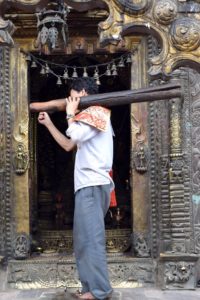
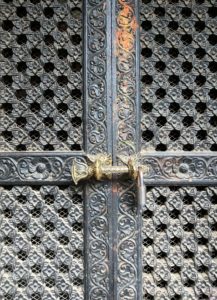
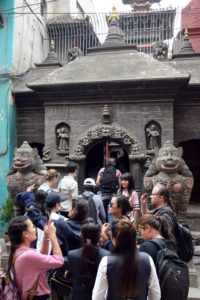
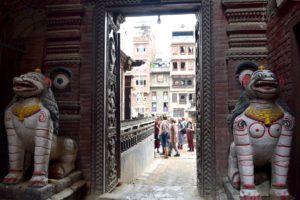
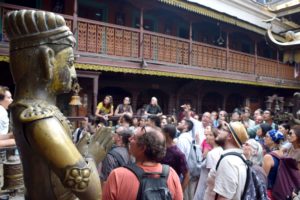
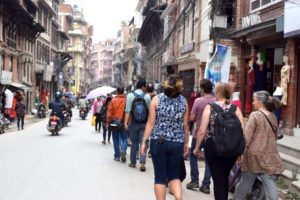
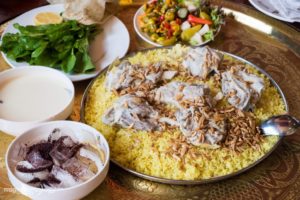




 Greetings from Amman, Jordan. This weekend was Eid al-Fitr which is the Muslim holiday to end the month of Ramadan. In the days before Eid, the streets swell with parents out shopping for clothes and gifts to give their children to celebrate the end of Ramadan. I spent the weekend camping in the canyons of “Dana Biosphere Reserve” (see pictures) and doing some great hiking. We camped with local bedouins and had a wonderful celebration. The bedouins give new meaning to the word hospitality – serving us mint tea and “zarb,” a famous dish of lamb or goat cooked with rice, carrots, onions, and potatoes in a specially-constructed hole in the ground that is filled with olive wood for cooking.
Greetings from Amman, Jordan. This weekend was Eid al-Fitr which is the Muslim holiday to end the month of Ramadan. In the days before Eid, the streets swell with parents out shopping for clothes and gifts to give their children to celebrate the end of Ramadan. I spent the weekend camping in the canyons of “Dana Biosphere Reserve” (see pictures) and doing some great hiking. We camped with local bedouins and had a wonderful celebration. The bedouins give new meaning to the word hospitality – serving us mint tea and “zarb,” a famous dish of lamb or goat cooked with rice, carrots, onions, and potatoes in a specially-constructed hole in the ground that is filled with olive wood for cooking.